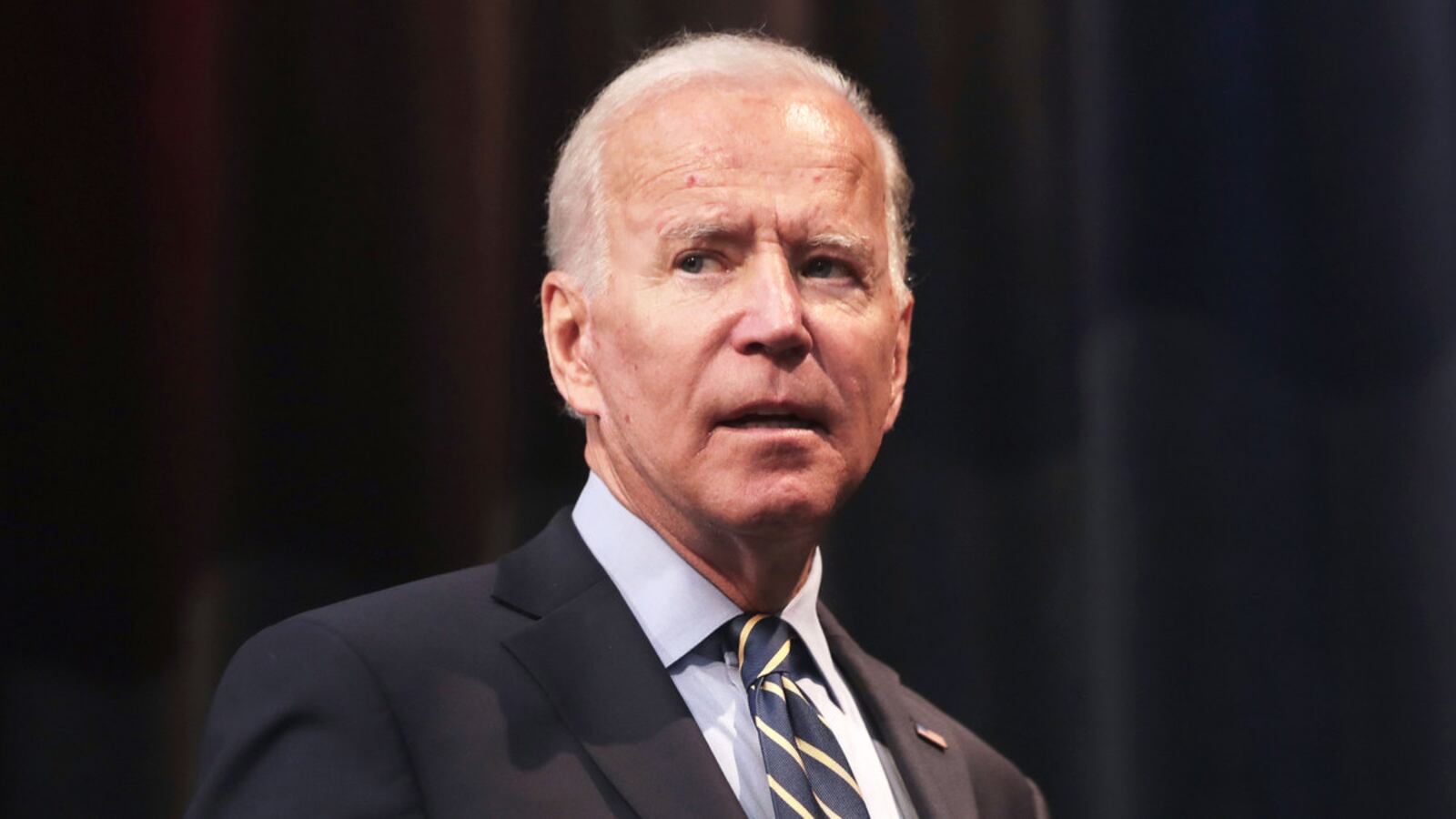Abortions rights advocates cheered when Joe Biden was elected, heralding his win as a “seismic shift” and a “welcome change.” Now, with the nationwide right to an abortion on the line, they’re getting a little impatient.
On Monday, the Supreme Court announced it would take on a Mississippi case that has the potential to overturn Roe v Wade, the 1973 decision making abortion legal across the country. If that happens, nearly half of the U.S. would move to prohibit the procedure, according to the Center for Reproductive Rights.
Advocates see the decision to take on the case as a massive threat to abortion rights—and one Biden may not be taking seriously enough.
“He turned his back on people who have abortions as soon as he got into office,” said Renee Bracey Sherman, executive director of the abortion advocacy group We Testify. “What happened this morning at the Supreme Court is what happens when you turn your backs on us and ignore the restrictions we’re facing every single day.”
Pressure on Biden to act more decisively began mounting April 29, when more than 140 organizations called on the administration to prioritize changes to U.S. sexual and reproductive rights law recommended by the United Nations. The day before, nearly 60 women’s rights organizations—including Planned Parenthood and NARAL, which spent tens of millions of dollars to help elect the president—sent a letter to the administration asking them to increase funding for abortion and remove “unnecessary barriers” to access.
“The Biden-Harris administration and Congressional leadership must prioritize these policies for women and women of color,” the We Demand More Coalition wrote, in a letter calling for multiple changes on behalf of American women. “We need to build back better for women and create lasting political, social and economic change.”
The tensions came to a head Monday, when the Supreme Court announced it was taking up a challenge to a Mississippi law that bans abortion at 15 weeks’ gestation—the most stringent restriction it has heard since Roe, and the first abortion case it has heard since the confirmation of Justice Amy Coney Barrett, who tipped the balance of the bench against reproductive rights.
White House Press Secretary Jen Psaki addressed the issue in a press conference that day, saying the administration was “devoted” to ensuring every American has access to reproductive health care, and “committed to codifying Roe.” But she did not once say the word abortion—an omission advocates have noticed.
“It’s hard to have a conversation about abortion policy in this country when you can’t say the word abortion,” said Destiny Lopez, co-president of reproductive-rights group All* Above All, adding that doing so would “send a message that it’s not just about policy—that they are committed to lifting some of the stigma, some of the shame around this issue in this country.”
And other advocates felt that the administration should be calling out more than just the Mississippi ban. More than 500 abortion restrictions have been introduced in 44 states this year, according to Planned Parenthood, including restrictions on the use of medication abortion and bans on the procedure at as early as six weeks.
At such a historically fraught time for abortion rights, “the bully pulpit of the White House—of a supportive administration that wants to see access to reproductive healthcare protected—is really important,” said Jacqueline Ayers, Planned Parenthood Action Fund's vice president of government relations and public policy.
She added: “We would love to see the administration be a really committed champion for sexual and reproductive health, [and] be explicit in their support for abortion as healthcare and in calling out attacks we’re seeing in the states.”
Biden pitched himself as a staunch supporter of abortion rights on the campaign trail, saying at one debate: “It’s a woman’s right to do that. Period.” He promised to pass legislation codifying Roe v Wade into law and to rescind the Hyde Amendment, which prohibits federal funds from going toward abortions. The “Biden Agenda for Women” promised to “protect and empower women around the world.”
This week, several advocates said his relative silence on the issue since taking office left them feeling like pawns.
“I think the Biden administration has done what a lot of politicians do, which is when they’re on the campaign trial they talk a great game, and then when they’re elected they seem to be little more shy,” said Quita Tinsley Peterson, co-director of the abortion fund ARC-Southeast. “With these clear attacks against abortion, there also needs to be a clear stance by this administration that abortion is not a compromise.”
Biden did make several steps toward improving access during his first 100 days in office, including rescinding the Mexico City Policy, which blocks U.S. funding to any NGO that advocates for abortion rights, and loosening restrictions on the Title X sexual and reproductive health care program. The FDA has also allowed for medication abortion to be prescribed via telemedicine for the duration of the pandemic, and is mounting a full-scale review of the larger restrictions around its use.
But Laurie Bertram Roberts, co-founder of the Mississippi Reproductive Freedom Fund, said lifting the federal restrictions around medication abortion did little to help people in states like Mississippi, where lawmakers have already outlawed its use via telemedicine entirely. “I’m still waiting for something to happen on the federal level that affects all states equally, and that hasn't happened yet,” they said.
To that end, advocates are backing national legislation like the Women's Health Protection Act, which would codify Roe into federal law, and the EACH Act, which would require government-sponsored insurance plans to cover abortion care. They are also asking for a repeal of the Hyde Amendment and the Helms Amendment, which bars foreign aid from going to organizations to provide abortions.
The Center for Reproductive Rights, which represents the plaintiffs in the Mississippi case, is also calling on Biden to ask the solicitor general to weigh in in their favor. (Previous administrations have done so in cases like Whole Woman’s Health v Hellerstedt, which successfully shot down a stringent abortion law out of Texas.)
Many of these requests have also been backed by prominent Democrats in Congress. Just this month, almost two dozen lawmakers wrote a letter calling on the president to keep the Hyde and Helms Amendments out of his budget. The Women's Health Protection Act had 43 co-sponsors when it was introduced in the Senate in 2019; supporters plan to re-introduce it this year.
Biden has also faced pressure from the other side—including the U.S. Conference of Catholic Bishops, which will weigh in this summer on whether or not to allow the pro-choice president to take Holy Communion.
On this issue, Bertram Roberts had a simple answer.
“They already hate you,” they said. “You might as well go ahead and stand up for what you think is right.”






